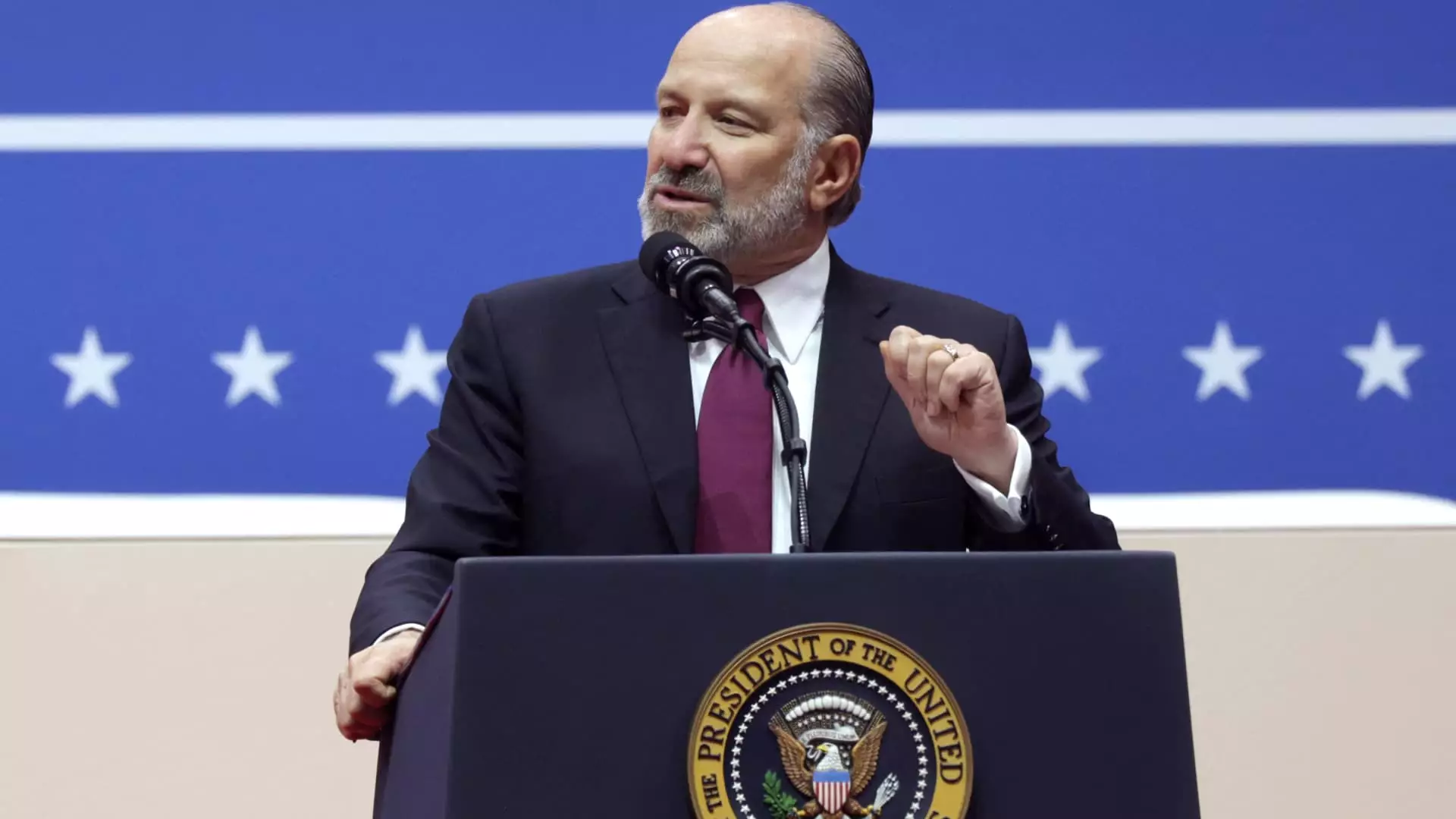The shadow of tariffs looms larger than ever in the debate on U.S. trade policies, particularly under the current administration’s approach. Howard Lutnick, Commerce Secretary under President Trump, recently hinted at new tariffs on electronics, stirring concerns across the technology sector. While the initial exemptions provided a glimmer of hope for companies like Apple, the uncertainty surrounding future tariffs strikes a jarring chord, especially for a nation increasingly reliant on technology. The reality is that these protective trade strategies not only alienate allies but risk inflating costs for American consumers.
Lutnick’s statements suggest that the reprieve from reciprocal tariffs is merely a temporary facade. What remains troubling is the administration’s lack of clarity regarding the long-term implications of these tariffs on our economy. Many Americans would agree that reliance on imports for significant tech products can pose challenges, but the notion of embarking on a self-sufficient tech production journey is a slippery slope. The costly venture against global supply chains could lead us down a path of diminished innovation and increased consumer expense.
A Struggle for Credibility
The responses elicited by Lutnick’s comments underlie a broader sentiment of mistrust towards the leadership’s approach to trade. Senator Cory Booker hit the nail on the head when he described the administration’s evolving stance on tariffs as disastrous for the U.S. credibility on the global stage. The erratic shifts not only leave businesses in disarray; they foster an environment of confusion that can deter foreign investment. The stated aim of achieving national security through domestic production manifests as a vague justification for policies that might very well inflame tensions and lead to retaliatory tariffs from trading partners.
Moreover, the reliance on vague phrases like “national security” often overshadows the crux of what these tariffs mean for American families and entrepreneurs. With tariffs as high as 145%, any reprieve could be short-lived. Consumers will invariably find themselves bearing the brunt of increased prices, all while the tech industry contorts to adapt to an ever-uncertain environment. This isn’t just about business; it’s about the myriad families and individuals whose affordability hinges upon accessible technology.
The Broader Economic Landscape
Fostering a vision of American self-reliance in tech production is noble and might resonate positively in theory; however, the practicality and ramifications warrant a deep examination. As we inch closer to implementing stringent tariffs on fundamental electronic goods, we must assess whether creating a sense of economic autonomy is worth the sacrifice it demands from everyday Americans. The tech industry thrives on innovation fueled by global collaboration—an ethos that is threatened by the insular policy framework currently in place.
It is not an exaggeration to assert that the current trajectory of tariff policies is unsustainable. Harmful repercussions will impact industries beyond technology and ripple through the economy, causing setbacks that we cannot sustain. The question remains: will policymakers wake up to the realities of a global economy, or will we continue to stumble into an isolationist mindset that compromises not only our wallets but the very foundations of our technological advancements, innovation, and ultimately, our global standing?


Leave a Reply